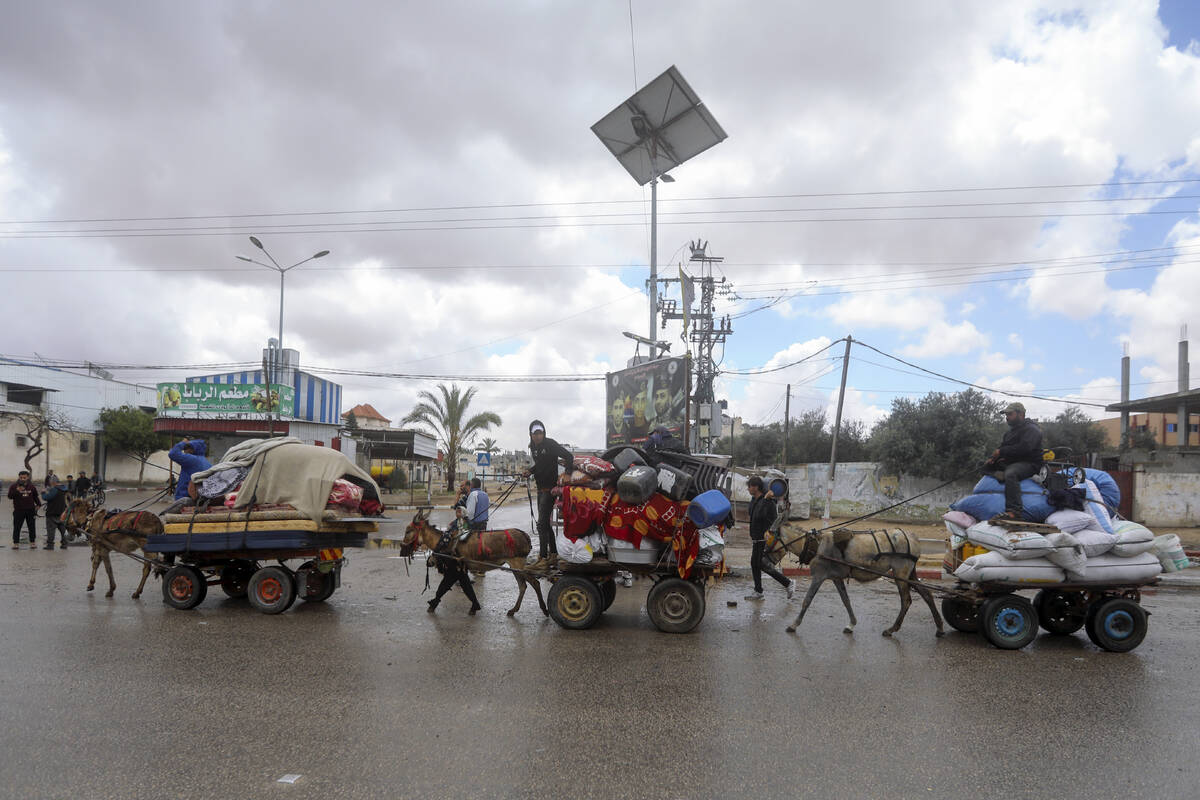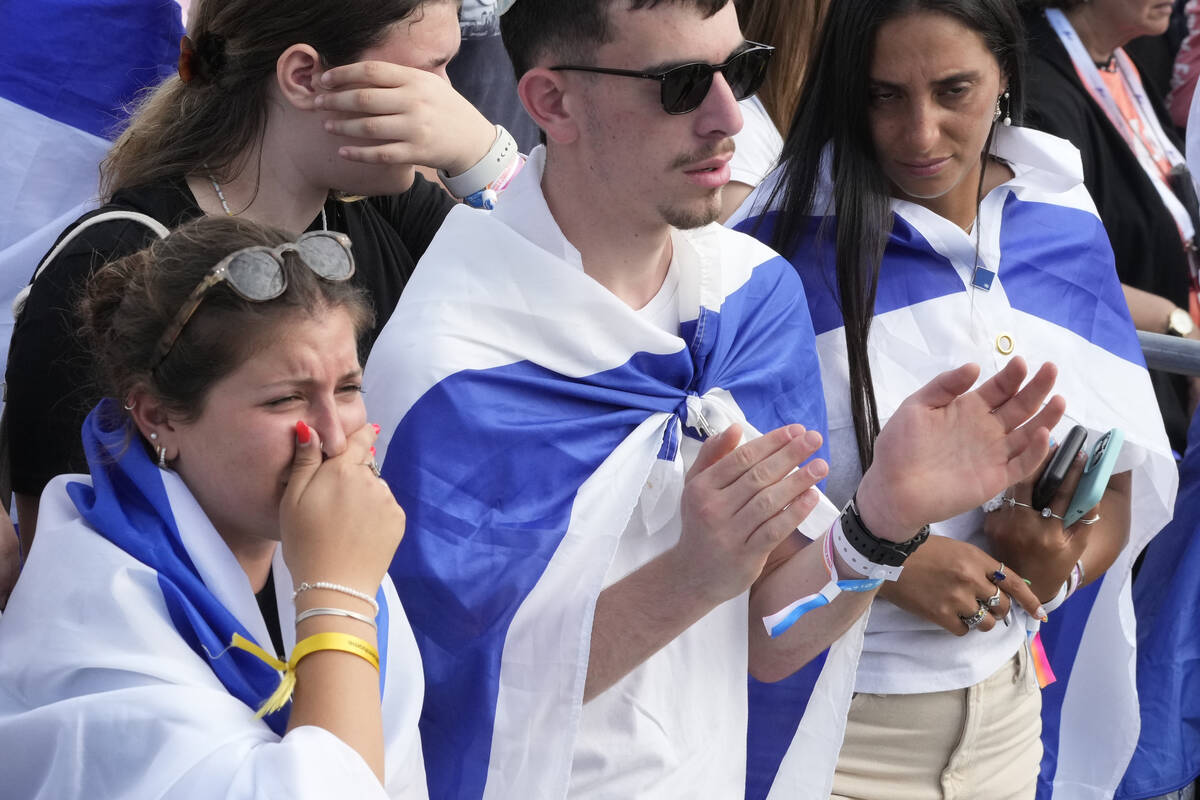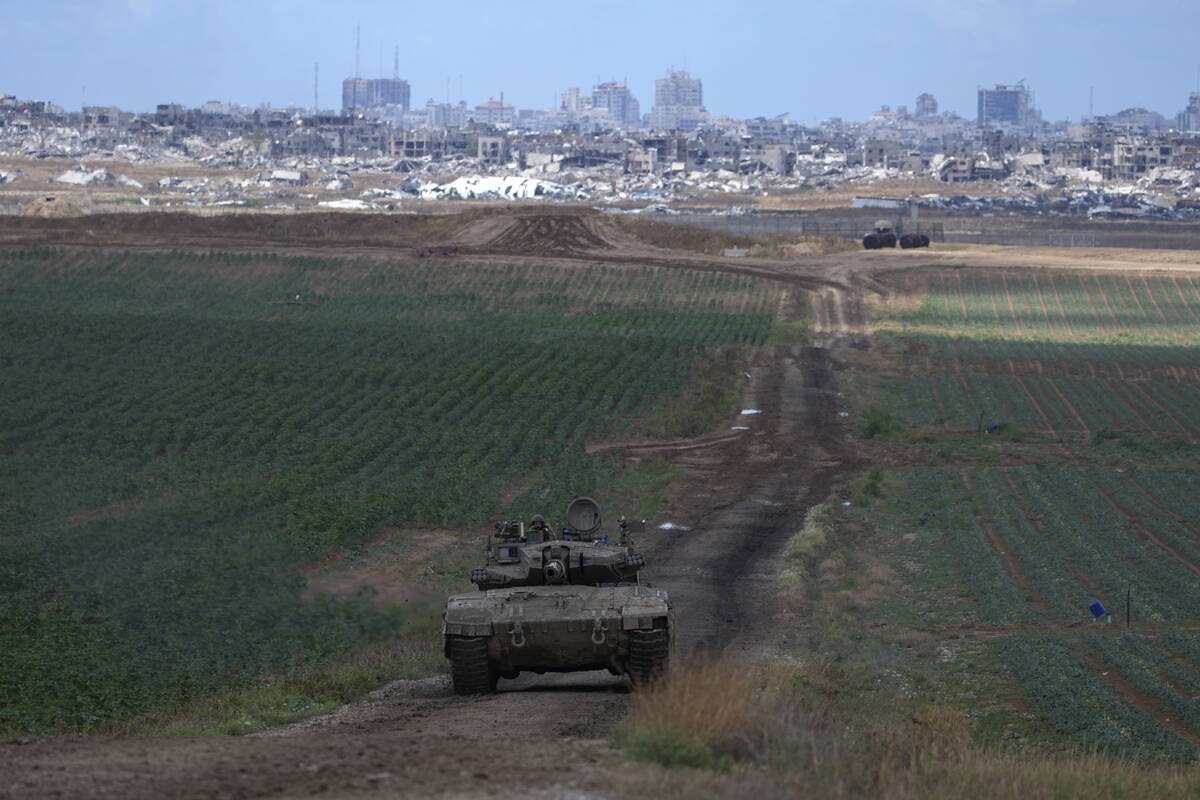Hamas accepts proposal for cease-fire in war with Israel
JERUSALEM — Hamas announced its acceptance Monday of an Egyptian-Qatari cease-fire proposal, but Israel said the deal did not meet its “core demands” and that it was pushing ahead with an assault on the southern Gaza town of Rafah.
Still, Israel said it would continue negotiations.
The high-stakes diplomatic moves and military brinkmanship left a glimmer of hope alive for an accord that could bring at least a pause in the 7-month-old war.
Hanging over the wrangling was the threat of an all-out Israeli assault on Rafah, a move that the United States strongly opposes and that aid groups warn will be disastrous for some 1.4 million Palestinians taking refuge there.
Hamas’s abrupt acceptance of the cease-fire deal came hours after Israel ordered an evacuation of some 100,000 Palestinians from eastern neighborhoods of Rafah, signaling an invasion was imminent.
The Israeli military said it was conducting “targeted strikes” against Hamas in eastern Rafah. Soon after, Israeli tanks entered Rafah, reaching as close as 200 yards from Rafah’s crossing with neighboring Egypt, a Palestinian security official and an Egyptian official said.
Both spoke on condition of anonymity because they were not authorized to talk to the media. The reported incursion came a day after Hamas terrorists killed four Israeli soldiers in a mortar attack that Israel said originated near the Rafah crossing.
The Egyptian official said the operation appeared to be limited.
Shortly after Hamas said it had accepted the Egyptian-Qatari truce proposal, Israel’s War Cabinet decided to continue the Rafah operation, Prime Minister Benjamin Netanyahu ‘s office said.
It also said that while the proposal Hamas agreed to “is far from meeting Israel’s core demands,” it would send negotiators to Egypt to work on a deal. Late Monday, Qatar announced it was sending a team to Egypt as well.
Biden talks to Netanyahu
President Joe Biden spoke with Netanyahu and reiterated U.S. concerns about an invasion of Rafah. State Department spokesman Matthew Miller said American officials were reviewing the Hamas response “and discussing it with our partners in the region.”
It was not immediately known if the proposal Hamas agreed to was substantially different from one that Secretary of State Antony Blinken pressed the terrorist group to accept last week, which Blinken said included significant Israeli concessions.
An American official said the U.S. was examining whether what Hamas agreed to was the version signed off on by Israel and international negotiators or something else.
Egyptian officials said that proposal called for a cease-fire of multiple stages starting with a limited hostage release and partial Israeli troop pullbacks within Gaza. The two sides would also negotiate a “permanent calm” that would lead to a full hostage release and greater Israeli withdrawal out of the territory, they said.
Hamas sought clearer guarantees for its key demand of an end to the war and complete Israeli withdrawal in return for the release of all hostages, but it wasn’t clear if any changes were made.
Israeli leaders have repeatedly rejected that trade-off, vowing to keep up their campaign until Hamas is destroyed after its Oct. 7 terrorist attack on Israel that triggered the war in which Hamas and other terrorists killed around 1,200 people, mostly civilians, and abducted around 250 hostages. After exchanges during a November cease-fire, Hamas is believed to still hold about 100 Israelis as well the bodies of around 30 others.
Israel’s retaliatory bombardment and ground offensives in Gaza have killed more than 34,700 Palestinians, according to the Hamas-run Health Ministry in Gaza. The tally doesn’t distinguish between civilians and combatants.
Netanyahu is under pressure from partners in his coalition who demand an attack on Rafah and could collapse his government if he signs a deal. But he also faces pressure from the families of hostages to reach a deal for their release. They say that time is running out to bring their loved ones home safely, and a ground operation would further endanger them.
Thousands of Israelis rallied around the country Monday night calling for an immediate agreement. About 1,000 protesters swelled near the defense headquarters in Tel Aviv. In Jerusalem, about 100 protesters marched toward Netanyahu’s residence with a banner reading, “The blood is on your hands.”
Israel says Rafah is the last significant Hamas stronghold in Gaza, and Netanyahu said Monday that the offensive against the town was vital to ensuring the terrorists can’t rebuild their military capabilities.
But he faces strong American opposition. Miller said Monday the U.S. has not seen a credible plan to protect Palestinian civilians.
“We cannot support an operation in Rafah as it is currently envisioned,” he said.
The looming operation has raised global alarm. U.N. High Commissioner for Human Rights Volker Türk on Monday called the evacuation order “inhumane.”
Leaflets order evacuation
Israeli military leaflets were dropped ordering evacuation from eastern neighborhoods of Rafah, warning that an attack was imminent and anyone who stays “puts themselves and their family members in danger.” Text messages and radio broadcasts repeated the message.
The military told people to move to an Israel-declared humanitarian zone called Muwasi, a makeshift camp on the coast. It said Israel has expanded the size of the zone and that it included tents, food, water and field hospitals.
Around 450,000 displaced Palestinians already are sheltering in Muwasi. The U.N. agency for Palestinian refugees, known as UNRWA, said it has been providing them with aid.
The evacuation order left Palestinians in Rafah wrestling with having to uproot their families once again for an unknown fate.
Jan Egeland, secretary-general of the Norwegian Refugee Council, condemned the “forced, unlawful” evacuation order and the idea that people should go to Muwasi.
“The area is already overstretched and devoid of vital services,” Egeland said.
Tensions escalate
Tensions escalated Sunday when Hamas terrorists fired rockets at Israeli troops positioned on the border with Gaza near Israel’s main crossing for delivering humanitarian aid, killing four soldiers. Israel shuttered the crossing.
The mediators over the cease-fire — the United States, Egypt and Qatar — had appeared to scramble to salvage a cease-fire deal they had been trying to push through the past week. Egypt said it was in touch with all sides Monday to “prevent the situation from … getting out of control.”
CIA Director William Burns, who had been in Cairo for talks on the deal, headed to meet the prime minister of Qatar, an official familiar with the matter said. It wasn’t clear whether a subsequent trip to Israel that had been planned would happen. The official spoke on condition of anonymity to discuss the closed-door negotiations.
In a fiery speech Sunday evening marking Israel’s Holocaust memorial day, Netanyahu rejected international pressure to halt the war, saying that “if Israel is forced to stand alone, Israel will stand alone.”
On Monday, Netanyahu accused Hamas of “torpedoing” a deal by not budging from its demand for an end to the war and a complete Israeli troop withdrawal in return for the hostages’ release, which he called “extreme.”
Bassem Mroue reported from Beirut. Zeke Miller contributed to this report from Washington.































